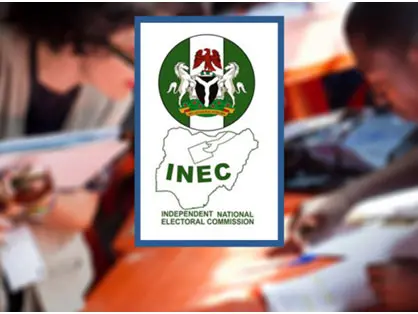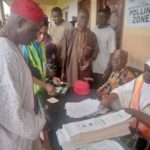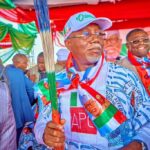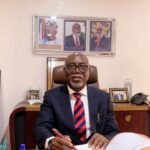In a major article in The Nation newspaper of September 3, it was announced that the “Independent National Electoral Commission (INEC) chair Prof. Attahiru Jega has lost out in his battle to hold tight to executive powers at the agency. The Attorney General of the Federation and Minister of Justice Mohammed Adoke has advised Jega to quit his role as the accounting officer of INEC.” The report revealed that there has been a running battle between Jega and some of the National Commissioners over the INEC chair’s alleged “acquisition of wide powers to himself ”. Yesterday, both Thisday and Vanguard newspapers carried major reports on the same issue. The three newspapers carried copious quotes from internal INEC documents indicating some people within the Commission are deliberately externalizing an internal struggle and this is a very worrying trend.
Before addressing some of the issues, it is important that we do not forget where we are coming from on electoral matters. After three successive elections – 1999, 2003 and 2007 in which each election was characterised by more fraud than the preceding one, the political future of Nigeria became bleak as despond- ency set it and confidence in our country’s future became very weak. This state of affairs has remained, and indeed worsened with the growth of insurgency fuelled by the acts of commission and omission of a reckless political class that is ready to fuel or provoke ethnic, religious and other identity based conflicts that are pushing the country to the brink. As the insurgency grows and the state appears less and less capable of protecting public safety, confidence in the survival of the country is at an all time low. My sense is that our present political crisis all flow from a crisis of legitimacy and if more and more Nigerians are considering the state as illegitimate, our history of repeated botched elections is the original sin that must be addressed in we are to rebuild confidence in the Nation.
Professor Jega has played a major positive role in seeking a pathway to start re-establishing confidence in our common political future because it was under his leadership that for the first time, we witnessed a significant improvement in the integrity of our elections in 2011. Since the elections, INEC has been engaged in a process of strategic thinking and planning on how to guarantee free, fair and credible elections in 2015 and my concern is that what we are witnessing today might be a coordinated attack aimed at frustrating this effort.
The 2011 election elections were not perfect. Indeed, the date April 2, 2011 will stand out for a long time in the annals of elections and elections administration in Nigeria – it was the first of the three polling days for the 2011 General Elections. That date became an indicator of three statistics vital to the determination of the state of ‘health’ of the electoral process. First, it was an early indicator of the massive turnout that would eventually characterize the 2011 General Elections; secondly it provided Nigerians the opportunity to assess the extent of preparedness of the electorate and the INEC for the elections. Finally, the date exposed the severe logistical flaws that had not been addressed in the electoral process and thus drawing the attention of the planners to these. It’s a date for which we should all thank Jega and INEC for because it represented a turning point from deceiving Nigerians to working towards correcting our challenges. INEC was sincere and bold in admitting its fault and deciding to take corrective measures.
The decision of INEC to adopt the modified open ballot system entailed that the electoral procedure was broken into two phases with accreditation of voters between 8 a.m. and noon and voting by the accredited prospective votes from 12:30 p.m. There- fore, accreditation processes had commenced in large parts of the country with voters and many polling unit officials not being aware of the logistical challenge that was to mark the elections, namely the non-delivery of result sheets by the contracted vendor for some states. The moment of shock was when the Chair of INEC, Professor Attahiru Jega addressed the nation to announce the Commission’s decision to postpone the National Assembly election from Saturday, 2nd April to Monday 4th April 2011. At that time, the elections were in various stages across the country. While accreditation was yet to commence in some polling units, most polling units were still accrediting, and some polling units had concluded and were waiting for 12:30 or for voting materials to commence voting. But in a few instances, voting had already commenced before the expected commencement time of 12:30pm. The cancellation however stopped completely the entire process across the country and invalidated all that been done up till that time. The event created huge doubts about the election process in some parts of the country and created the ideological foundations for the violence that emerged in some parts of the country.
Just over a week ago, a book entitled “Security Challenges of Election Management in Nigeria” edited by ‘Lai Olurode and Attahiru Jega was launched in Abuja. In the book, one of the authors, Professor Jinadu argued that one of the most serious challenges to the organisation of elections could be internal to the process of electoral governance. He explained that internal politics could develop within INEC itself if members are beholden to forces outside the Commission. He added that internal bickering can cripple INEC’s capacity and that the tendering and procurement system can be a tinder box igniting crisis. The book was written at the end of 2010 but its foresight is significant as the fear he evoked then has now become the reality we are living with.
We read in the media today that that Jega has been running INEC in “a one man show arrangement.” It is said that he has “been obsessed with power and wants sweeping powers for the INEC chair.” There is clearly a massive amount of disinformation being circulated. In all our struggles in ASUU which Jega chaired at a critical moment, I have never heard or seen any evidence of power grab or one man show. His style has always been to excessively seek collective decision making and carry everybody along. I am not privy to the internal working of INEC but all the same, I do not see how or why he would suddenly transform himself into a dictator. It is just not in his DNA.
It is important that we know and address what then is happening in INEC today.
We now know that that Jega wrote the Attorney General of the Federation seeking for clarification on who should be the accounting officer of the body. He In the request, he was quoted to have stated that: “Since our assumption of office as a new Commission in July 2010, having regard to the fact that neither the Constitution nor the Electoral Act defined the role of the Secretary to the Commission as the Accounting Officer, I have considered myself as such, relying upon provisions of the Procurement Act, particularly Sections 18, 19 and 20 of the Act and Regulations issued by the Bureau of Public Procurement to the effect that in an MDA/Corporate procuring entity, the Chief Executive is the Accounting Officer. “I have also done this, given the weighty personal liability which the Procurement Act places on the shoulders of the Accounting Officer. The tradition in INEC had been that a Permanent Secretary was posted as the Secretary, until 2008, when INEC, having regard to the provisions of the Constitution and Electoral Act appointed its Secretary. The functions/roles of the Secretary as specified did not say or imply that he is the Accounting Officer”. In his response, Mr. Adoke declared categorically that the chairman is not the accounting officer of INEC and that it is the Secretary who is. “Regrettably, it would appear that no such terminology was used in the statutes examined. Item 14(1)(a) of Part 1 to the Third Schedule of the Constitution only provides that the Chairman shall be the Chief Electoral Commissioner. The provision does not state that the ‘Chief Electoral Commissioner’ is the ‘Chief Executive Officer or Accounting Officer of the Commission.”
The Attorney General of the Federation and Minister of Justice is a leading member of the ruling party and I feel it was wrong for the Commission to ask him to provide an opinion. It is generally known that the ruling party is worried about its performance in the 2015 elections and the opinion they provide might be tainted. Handing over vast powers in the Commission to the Secretary that will be appointed in the coming months, the tenure of the present secretary will be ending soon, might cripple the Commission if Professor Jega as Chief Electoral Officer of the country is dependent on a subordinate in the Commission for key decisions. I am extremely worried that we might have before us a scenario being played out to cripple INEC’s efforts to continue improving the integrity of our elections. I believe at this point that INEC should seek further legal advice and engage Nigerians on what is really going on so that corrective measures could be taken before things get out of hand.

 Join Daily Trust WhatsApp Community For Quick Access To News and Happenings Around You.
Join Daily Trust WhatsApp Community For Quick Access To News and Happenings Around You.

